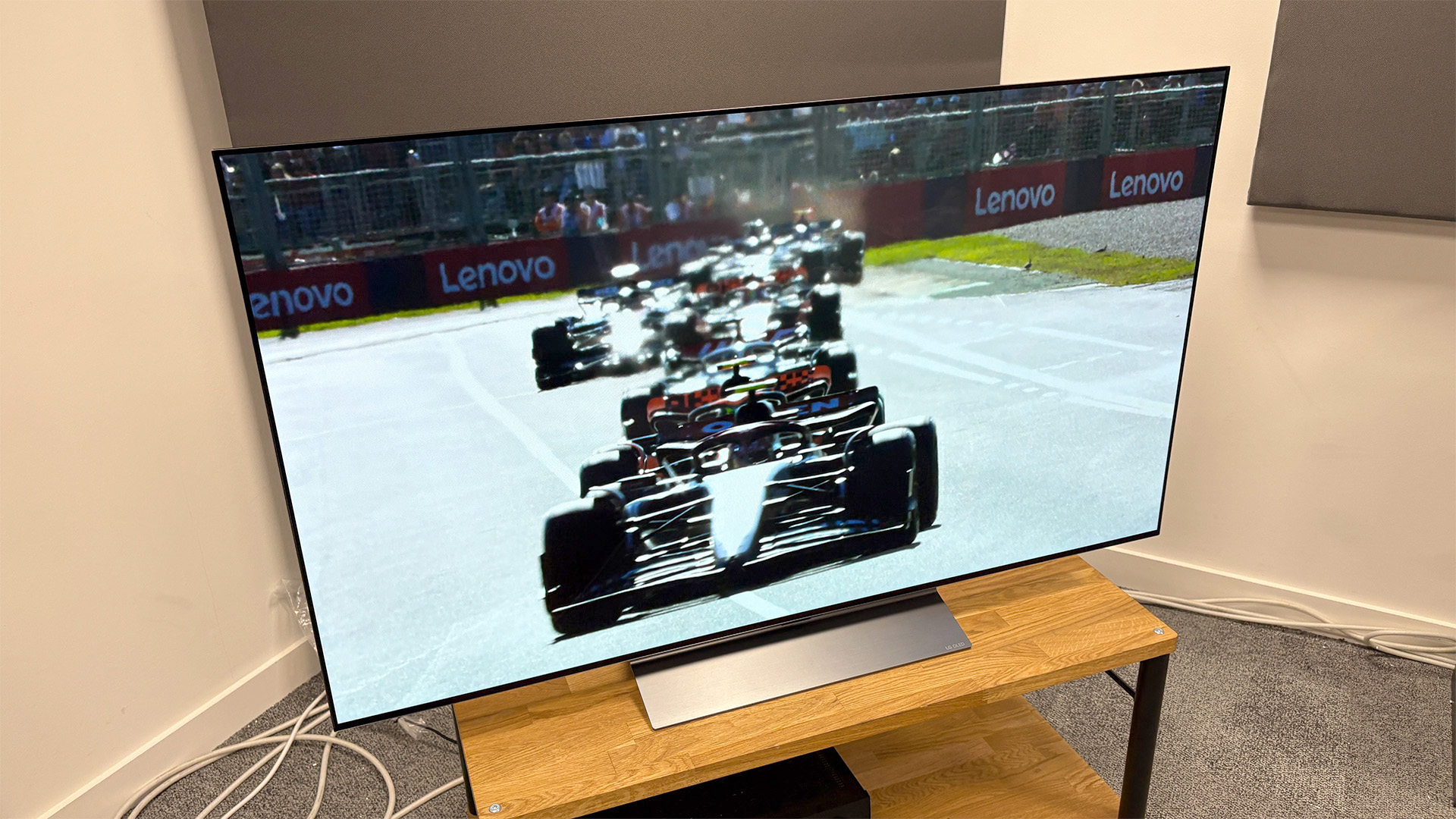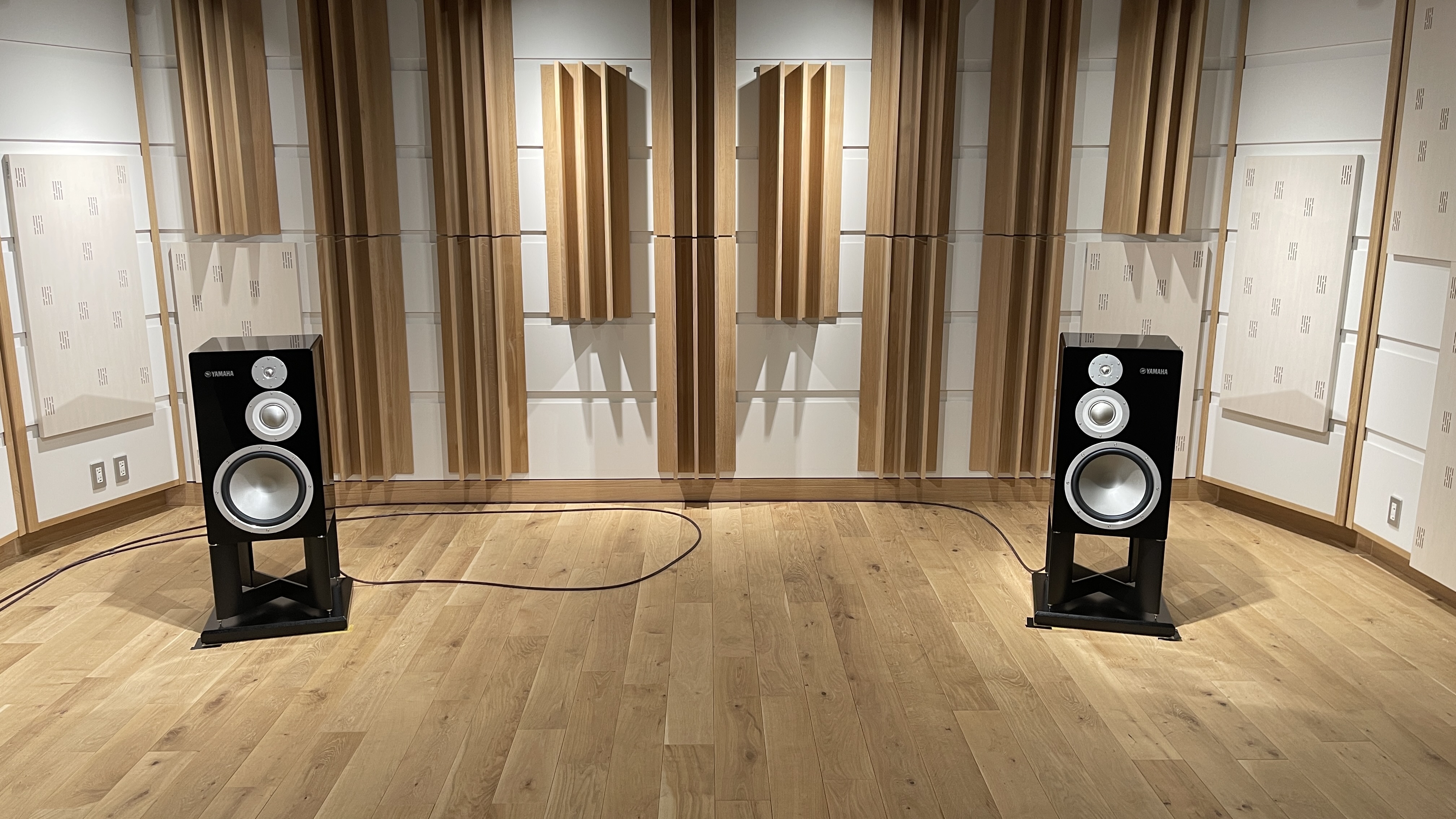LG knows OLED is king, which is why it's trying to make its Mini LEDs more like the C5
But is it appropriating the best bits of OLED, or has it missed the point?

LG is renowned for its OLED TVs, with the B-, C- and G-series tending to be the default pick for most people looking to score their first OLED set, or upgrade to the latest-generation model.
While we think of it primarily as a purveyor of OLED TVs, LG also has a range of backlit models, which it tends to keep fairly quiet about. "Why is that?" you may ask. Well, historically speaking, they're not very good.
We rarely see the QNED (Quantum NanoCell Emitting Diode) TVs in our testing rooms, as LG always seems hesitant to allow these models to be scrutinised in the same way we do with the equivalent OLEDs.
The company has, within the past year, decided to put a bit more effort into its QNED line; we even managed to review the LG QNED91, though that resulted in a three-star verdict due to backlight issues, limited viewing angles and a price tag that didn't justify its performance.
So, LG has gone back to the drawing board for its QNED TVs, and in doing so has opted to rebrand with a new QNED Evo series. That Evo suffix has been a staple of the C-series, G- and M-series OLED ranges for many years now, and hints towards how the panels featured in these TVs are brighter and more power-efficient.
When it announced that the Evo branding would be coming to the QNED range, I sat smugly thinking I had read between the lines; LG clearly knows that the OLEDs are better and more popular, so it's looking to bring the QNED TVs into line.
And indeed, at a behind-closed-doors event for members of the press to see the new TVs early, LG decided basically to admit this with absolutely zero prompting required.
Get the What Hi-Fi? Newsletter
The latest hi-fi, home cinema and tech news, reviews, buying advice and deals, direct to your inbox.
During the portion of its presentation focused on the QNED TVs, LG highlighted three aspects of the OLED experience that it hopes to bring to the QNED range – and honestly, they're not the three I would pick. They are: Zero Connect, super slim design, and 100-inch screens.
Zero Connect makes sense as the wireless interface box has proved to be successful on the M4 OLED TV, though I wouldn't call it a headlining feature of LG's OLED range.
And the 100-inch screen size isn't something I would consider synonymous with LG OLEDs either. Admittedly, I didn't realise until recently that LG's QNED range maxed out at 86 inches. However, I'm not convinced that the £25,000 97-inch G4 OLED is a major unit shifter in LG's lineup either.
And, of course, I can support the super-slim design – bulky backlit TVs can be unsightly. The only company I've seen nail the super-slim Mini LED form factor is Samsung with the QN95D, so I'm sure LG would like to steal its arch-rival's thunder.
However, I would argue that picture performance should be the most important pillar. Eliminating blooming, ensuring blacks are as deep and dark as possible, and replicating the vibrant colours of its OLED TVs should be LG's primary concerns.
That, of course, is all easier said than done, but by not mentioning it in its new QNED strategy, I can't help but wonder if LG has sort of missed the point.
It did point out that there are enhanced light-control systems in place on the latest Mini LED model, intended to improve local dimming and reduce blooming – though that didn't get the same attention as the rest of the new QNED Evo features.
Regardless, we know that the Mini LED panels on the market aren't able to match OLED in terms of perfect blacks and zero blooming. So we would like to see picture performance be the top priority going forward.
Ultimately, it does make sense for LG to refocus its Mini LED vision. If we're being frank, it has pretty much nailed the OLED formula, as shown by the fact that the C5 is a five-star set despite being eerily similar to its predecessor.
I doubt that LG will totally unify its OLED and Mini LED offerings as far as performance is concerned, but it does at least seem to concede that Mini LED could learn a lot from OLED.
MORE:
Read our full LG C5 OLED TV review
As well as our LG G5 OLED TV hands-on review
And check out our picks for the best Mini LED TVs
Lewis Empson is a Senior Staff Writer on What Hi-Fi?. He was previously Gaming and Digital editor for Cardiff University's 'Quench Magazine', Lewis graduated in 2021 and has since worked on a selection of lifestyle magazines and regional newspapers. Outside of work, he enjoys gaming, gigs and regular cinema trips.
You must confirm your public display name before commenting
Please logout and then login again, you will then be prompted to enter your display name.
